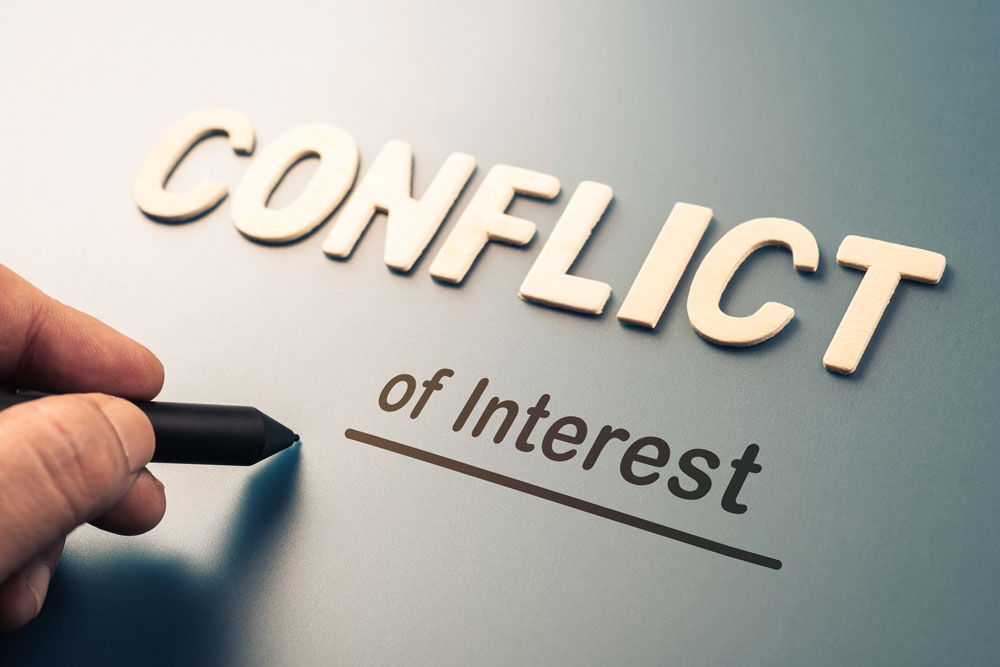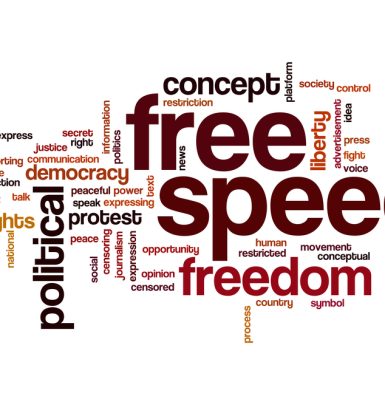Oral settlement agreements are typically enforceable, provided that the parties are able to show a meeting of the minds regarding terms that comply with their jurisdiction’s statute of frauds, and that can be performed within one year.[1] However, when the oral settlement is reached during a mediation, the agreement may be unenforceable even where there is no material disagreement on the settlement terms. This article serves to summarize a recent New Jersey appellate ruling that drew a bright line rule on whether oral settlements reached in mediation are enforceable, and how this decision compares to the current law in Pennsylvania.
Napolitano & Oral Settlement Agreements in New Jersey Mediations
In Napolitano v. European Construction Professionals LLC, the New Jersey Appellate Division considered whether one party could compel the other to comply with the terms of an oral settlement reached during mediation.[2] The litigation initially arose out of a breach of contract dispute, where plaintiff homeowners alleged breach and negligence against a construction company. After discovery, the parties agreed to participate in mediation. While they failed to reach a settlement during their initial meeting, a subsequent series of phone calls between the parties and the mediator appeared to resolve the dispute.
Seeking to confirm the settlement, the mediator sent a letter to each party’s counsel, expressing that, “based upon my phone conversations with each of you yesterday, we have reached an agreement.” The letter also set forth the essential terms of the settlement, and requested each party to sign and return the letter to signify their assent to the deal. Neither party, however, returned a signed copy of the letter, nor did they email the mediator acknowledging the settlement’s completion. Instead, the parties exchanged emails about redefining some details of the settlement, and eventually ceased communication without a resolution.
Six months later, the defendants filed a motion to enforce the settlement with the New Jersey Law Division in Hudson County. The defendants argued that the essential terms had been agreed upon, while the plaintiffs asserted that there was no binding agreement reached. The Law Division granted the defendants’ motion, concluding that the parties had reached a meeting of the minds during the mediation process, and noting that past precedent had enforced oral settlement agreements, even without the presence of a written agreement.
The plaintiffs appealed, and in a notable opinion, the Appellate Division reversed the lower court’s decision. The Appellate Division first acknowledged that typically, when parties agree upon the essential terms of a settlement so that the details can be “fleshed out” in a later written document, the settlement will be enforced notwithstanding the fact that a writing does not materialize because one party later reneges.
However, the Appellate Division then drew a sharp distinction for oral settlements reached during mediation, proclaiming that, under New Jersey law, “a settlement that is reached at mediation but not reduced to a signed written agreement will not be enforceable. This ‘broad, bright-line rule’ governs all mediation agreements, whether mediation is court-ordered or voluntary.”[3] This rule eliminated New Jersey litigants’ ability to enforce oral settlement agreements reached in mediation, unless the agreement has a written, signed counterpart.
Pennsylvania Courts on Oral Settlement Agreements in Mediation
Unlike the bright-line rule expressed by the New Jersey Appellate Division in Napolitano, Pennsylvania courts have not adopted a rule prohibiting the enforcement of oral settlements reached in mediation. “An oral settlement agreement may be enforceable and legally binding without a writing.”[4] Generally, Pennsylvania law requires that, to enforce an oral settlement made in mediation, there must be clear evidence that both parties assented to the essential terms of the settlement, and that the parties must not have agreed that a written contract was a condition to a binding agreement.
The Pennsylvania Superior Court considered the question in Krebs v. United Refining, when a plaintiff homeowner alleged nuisance and negligence after the defendant’s property leaked gasoline fumes into the plaintiff’s basement.[5] The parties participated in mediation, and while they did not reach a total settlement, they drew up a written mediation agreement. The agreement, however, provided that “no settlement is final and/or binding until formal documents are fully executed.” The parties later orally agreed to settle for $187,500, but no written agreement was memorialized.
Eventually, the homeowners filed a motion to enforce the settlement, which the trial court denied, and the Superior Court considered on appeal. In affirming the lower court’s denial of enforcement, the Superior Court ruled that it would only “enforce oral settlement agreements… if the parties have agreed upon the essential terms of the agreement.” The court ruled that the evidence failed to show that the parties had achieved a meeting of the minds as to the essential terms of the settlement, and the court would not “fill these terms in” and enforce an agreement of its own devising. The court relied on the fact that essential terms were never placed on the record, and that the parties had explicitly agreed that the settlement must be in writing to be enforceable.[6]
Pennsylvania’s federal courts have drawn similar conclusions when interpreting the enforceability of oral settlements reached at mediation. The Western District of Pennsylvania has ruled that the test for enforceability is whether both parties have manifested intent to be bound by the settlement’s terms and whether the terms are sufficiently definite to be enforced.[7] A term sheet may be evidence of an intention to be bound, but when it requests one party’s agreement to the terms therein, this weighs against enforceability.[8] In a Middle District ruling, the court enforced the terms of an oral agreement reached as to all material terms during a court annexed voluntary mediation notwithstanding the parties’ inability to agree on how the terms would be memorialized in a subsequent writing.[9]
The Eastern District of Pennsylvania enforced an oral settlement reached in mediation in Orta v. Con-Way Transportation.[10] There, a formalized writing was not a condition of the settlement, and both parties were present at the settlement conference and had given express authority to their attorneys to settle the lawsuit. Additionally, the mediator held a post-negotiation meeting to ensure that the parties understood what occurred during the mediation, and the plaintiff did not object to the settlement at that time. The fact that the plaintiff later changed her mind regarding the agreed-upon terms did not undermine the binding nature of the agreement.
The Mediation Privilege as a Challenge to Enforcement
A complicating factor in enforcing oral settlements reached in mediation is the existence of a “mediation privilege” in both the state and federal courts. The Pennsylvania state mediation privilege is outlined by 42 Pa.C.S.A. § 5949, and generally bars admission of all mediation communications and documents into evidence. However, the state privilege carries a notable exception: a mediation document may be introduced in an action to enforce a settlement agreement. There remains question, however, as to whether oral assertions made during a mediation can be introduced in an action to enforce a settlement agreement in Pennsylvania state court.[11] Enforcement of the federal mediation privilege has also been uneven.[12] Therefore, there is an obvious tension between the application of confidentiality to mediation discussions and the potential need to enforce terms agreed upon during the mediation. This tension will tend to increase the difficulty of supplying admissible testimonial evidence necessary to enforce terms that were not reduced to writing.
Mediation & Oral Settlements: Best Practices to Ensure Enforceability
While the recent New Jersey appellate ruling in Napolitano is appealing for its bright-line rule barring enforcement of oral agreements reached at mediation, it is also unsatisfactory in the context of oral agreements reached that neither party contends are an inaccurate recitation of the settlement terms. Where one party concedes that it entered into an oral agreement to settle and the terms are undeniable, it is cold comfort to the other side to learn that the agreement reached will be unenforceable simply because it was not immediately reduced to writing.
To improve the likelihood that an oral settlement reached during mediation will be enforceable, consider the following practice pointers:
If parties are able to agree on the essential terms of a settlement, write them down on a term sheet signed by the parties and witnessed by counsel. This will provide stronger justification for bypassing the mediation privilege if you must file a motion to enforce settlement. In the term sheet, stipulate that formalization of the terms into a written contract is not a condition precedent to its binding nature. Include a statement that each party has in fact read, understood and agreed to the terms, preferably in consultation with their respective counsel. Securing a signature, initials or other physical manifestation of the opposing party’s informed assent to the terms is also critical to ensuring enforceability, particularly in New Jersey.
If the desire is to avoid later inquiry into oral mediation communications, incorporate into the mediation agreement a provision precluding disclosure and rendering such communications confidential, including the exchange of documentary evidence, mediator statements made during the course of the session, as well as any draft terms sheets.
A more nuanced drafting approach would deem all communications during the course of the mediation confidential, but explicitly state that the provision does not apply to any proceeding to enforce a mediated settlement.
Finally, take all steps to ensure that your client has expressly consented to the settlement, and your role in securing it. Have your client(s) present at the settlement negotiations, and have the mediator explain the mediation process to them. Be sure that at the conclusion of the mediation, your client has fully understood what has transpired, and each material term of the agreement. This will help to ensure that there is adequate evidence of their express consent to settle.
The article was written with the assistance of Thomas DePaola, a 2024 summer associate in the firm’s Philadelphia, Pennsylvania office.
[1] See, e.g., White v. Fleet Bank of Maine, 875 A.2d 680 (Me. 2005).
[2] See Napolitano v. Eur. Constr. Pros., LLC, No. A-0960-23, 2024 WL 1650656 (N.J. Super. Ct. App. Div. Apr. 17, 2024). The opinion is designated “not precedential.”
[3] The Appellate Division relied primarily on the reasoning of its prior ruling in Gold Tree Spa, Inc. v. PD Nail Corp., 291 A.3d 1185 (N.J. App. Div. 2023)
[4] Kazanjian v. New England Petroleum Corp., 332 Pa. Super. 1, 480 A.2d 1153, 1157 (1984). “If parties agree upon essential terms and intend them to be binding, ‘a contract is formed even though they intend to adopt a more formal document with additional terms at a later date.’” Johnston v. Johnston, 346 Pa. Super. 427, 499 A.2d 1074, 1976 (1985).
[5] See Krebs v. United Ref. Co. of Pennsylvania, 893 A.2d 776 (Pa. Super. 2006).
[6] It bears noting that the Superior Court recently reaffirmed the principle that a settlement, whether oral or in writing, will not be enforced unless it reflects the express authorization of the client. John G. King v. Christopher P. Driscoll, 2023 Pa. Super. 95 (June 5, 2023)(reversing trial court’s grant of petition to enforce settlement). See also Reutzel v. Douglas, M.D., 870 A.2d 787, 788 (Pa. 2005) (reversing trial court’s order enforcing claimed settlement and remanding for trial court to determine whether plaintiff sustained his burden in proving defendant’s attorney had express authority to settle the case).
[7] See Long v. TowLine River Serv., Inc., 568 F. Supp. 3d 535, 549 (W.D. Pa. 2021).
[8] The Third Circuit, in its Appellate Mediation Program Rules, prohibits disclosure of statements made in mediation proceedings, and further provides that “[n]o party will be bound by statements or actions at a mediation session unless a settlement is reached. If a settlement is reached, the agreement must be reduced to writing and will be binding on all parties to the agreement[.]” L.A.R 33.5(c) & (d).
[9] Bayer v. CitiMortage, Inc., 2014 WL 4187556 (M.D. Pa. 2014). The court noted in its opinion that “there is a strong public policy favoring voluntary settlement of lawsuits,” and therefore, allowing parties to void settlement agreements “because the agreement becomes unpalatable or the parties become greedier, ‘would work a significant deterrence to the federal policy encouraging settlement agreements.’” (internal citations omitted).
[10] See Orta v. Con-Way Transp., No. CIV.A. 02-1673, 2002 WL 31262063 (E.D. Pa. Oct. 8, 2002).
[11] See Aetna, Inc. v. Lexington Ins. Co., 76 Pa. D. & C. 4th 19 (Pa. Ct. Com. Pl. 2005) (finding that “the confidentiality of the mediation process” is not violated when courts “consider communications related to… mediation in order to ascertain the parties’ intent with regard to [a] Settlement Agreement.”). The Uniform Mediation Act, which has been adopted in a minority of states, exempts only written settlement agreements from the mediation privilege. See Section 6(a)(1).
[12] See generally Gatto v. Verizon Pa., Inc., 2009 U.S. Dist. LEXIS 86601 (W.D. Pa. 2009) (declining to apply a mediation privilege and allowing a mediator to testify as to the terms orally agreed upon during mediation between parties). See also, Robert Runyon III, et. al., The Ongoing Split Within the Third Circuit Over the Existence of A Federal Mediation Privilege, 95 Pa. B.A.Q. 28, 32 (2024) (addressing the dichotomy that exists between Pennsylvania state and federal courts concerning communications made during the mediation process).
Last modified: June 27, 2024







No comments yet.